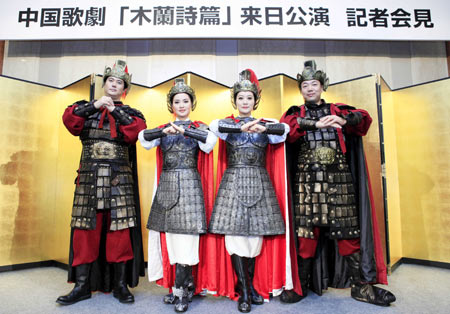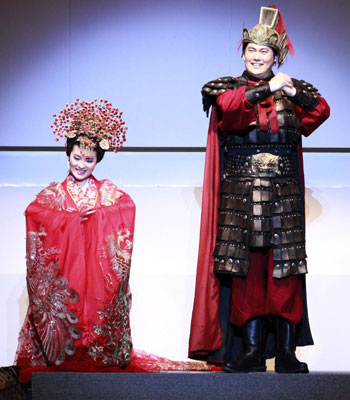|

(From L to R) Chinese singer Yu Shuang, Lei Jia, Tan Jing and Sun Xuexiang pose for photos during the press conference of Chinese Opera Mulan in Tokyo, Nov. 10, 2009. [Xinhua]
|
|

Lei Jia (L) and Yu Shuang in ancient Chinese costumes, singers from the People's Liberation Army's (PLA) General Political Department, are seen on the stage of the first show of Chinese opera Mulan in Tokyo, Japan Nov 11, 2009.[Xinhua]
|
TOKYO: At a press conference held Tuesday, Li Shengquan, head of the performing arts troupe, said that Mulan Psalm relates an ancient Chinese tale in the form of an opera.
It represents the aspiration and hope that the Chinese people have long cherished for peace and a tranquil life, said Li, who is deputy chief of publicity division of the People's Liberation Army's (PLA) General Political Department.
Li also voiced his belief that the opera will become popular with the Japanese audience and strike a responsive chord in their hearts.
Mulan Psalm is based on the well-known Chinese folktale heroine Mulan who disguised herself as a man to replaced her ailing father in the army and saved her country from the intruders.
The opera was first staged in Beijing in 2004, and Peng Liyuan, a celebrated Chinese soprano, played the leading role of heroine Mulan. It has toured across China ever since.
In 2005 and 2008, Mulan Psalm was also staged at New York's Lincoln Center and Vienna's State Opera House respectively.

